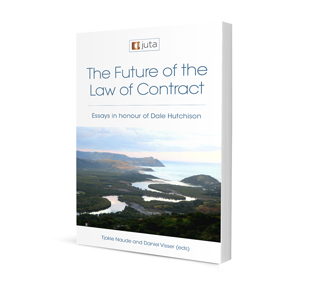The future of contract law: Three conversations at the Cape

The future of contract law: Three conversations at the Cape
Author R Brownsword
ISSN: 1996-2088
Affiliations: LLB (University of London (LSE)); Professor of Law at King’s College London and at Bournemouth University, Honorary Professor at Sheffield University, and Visiting Professor at the City University Hong Kong.
Source: Acta Juridica, 2021, p. 3 – 36
https://doi.org/10.47348/ACTA/2021/a1
Abstract
This contribution considers the future of the English law of contract in the form of three conversations that are alert to the disruptive impact of technologies on both the content of legal rules and the way that lawyers think – and indeed on the kind of conversations that lawyers have with one another. The first conversation is concerned with ‘coherence’ in contract law, with the application of general principles to novel fact situations and to new phenomena, with the smoothing of tensions within the law, and with the internal integrity of legal doctrine. The second conversation focuses on a tension between, on the one hand, what may be called a traditional private law ‘coherentist’ concern for doctrinal integrity and the primacy of principle over policy and, on the other hand, a more ‘regulatory’ approach to contracts, especially to consumer contracts, in which policy and instrumental rationality prevail. The third conversation focuses on the use of emerging transactional technologies (such as blockchain-supported smart contracts and AI) that have the potential to displace the rules and principles of contract law. Instead of legal code governing transactions, might we find that technological coding does all the work, making, performing and enforcing ‘contracts’? Each conversation suggests a different future for contract law. The first conversation suggests that contract law will have difficulty in living up to the private law ideal of coherence; the second suggests that coherentism will struggle to survive as it is challenged by an increasingly regulatory approach to the governance of transactions; and the third suggests that, in a world of smart transactional technologies, there is a serious question mark about the relevance of contract law as a body of rules that governs transactions.